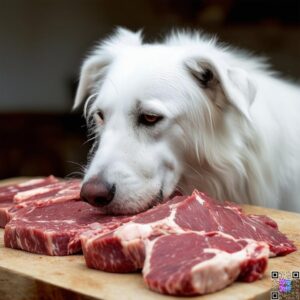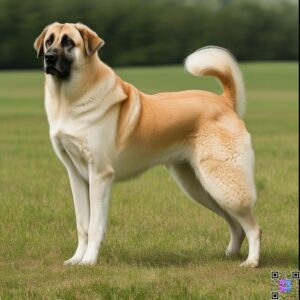Introduction
The Anatolian Shepherd breed has a rich history and a unique set of characteristics that make it a popular choice among dog enthusiasts. Originating in ancient Turkey, this breed has evolved over time to become a loyal and intelligent companion. In this article, we will delve into the history, physical characteristics, temperament, health, and grooming needs of the Anatolian Shepherd, as well as provide tips on breeding and selecting the right puppy. Whether you are a seasoned dog owner or a newcomer to the world of canine companionship, this guide aims to provide you with a comprehensive understanding of the Anatolian Shepherd breed.
History and Origin

Ancient Origins and Modern Development
The Anatolian Shepherd breed has its roots in ancient Turkey, where it was bred to guard sheep and other livestock. The breed’s early history is shrouded in mystery, but it is believed to have originated over 6,000 years ago. Over time, the breed was developed and refined to become the loyal and intelligent companion we know today.
Evolution of the Breed
In the early 20th century, the Anatolian Shepherd was introduced to the United States, where it quickly gained popularity among dog enthusiasts. The breed was recognized by the American Kennel Club (AKC) in 1998 and has since become a beloved companion for many families.
Modern Development
Today, the Anatolian Shepherd is bred for its intelligence, loyalty, and protective instincts. Breeders work tirelessly to ensure that each puppy is born with these traits, making them an excellent choice for families and individuals alike.
Overview of the Anatolian Shepherd Breed
Anatolian Shepherds are large, powerful dogs that can weigh between 80 to 150 pounds and stand 27 to 29 inches tall. They possess a short coat that comes in various colors, including fawn, brindle, and white. These dogs are known for their calm demeanor but can be quite independent and strong-willed. This breed was specifically developed to protect livestock from predators, making them natural guardians with a strong instinct to protect their families.Their temperament is characterized by loyalty and alertness. While they can be affectionate with their families, they may be wary of strangers. Early socialization is crucial to ensure they grow up to be well-adjusted companions. With proper training and care, Anatolian Shepherds can be both effective working dogs and loving family pets.
Physical Characteristics
Size, Coat, and Body Type
The Anatolian Shepherd is a large breed, typically weighing between 80-150 pounds and standing between 29-34 inches tall at the shoulder. Its thick, double coat is designed to protect it from the harsh Turkish climate and can come in a variety of colors, including fawn, brindle, and white.
Head and Body Type
The breed’s head is broad and flat, with a distinctive stop (the area where the muzzle meets the forehead). Its body is muscular and athletic, with a deep chest and well-sprung ribs.
Tail and Ears
The Anatolian Shepherd’s tail is long and bushy, carried low when the dog is alert. Its ears are triangular and erect, giving it a regal and alert appearance.
Temperament and Training
Loyalty and Intelligence
The Anatolian Shepherd is known for its unwavering loyalty to its family and its intelligence. It is highly trainable and thrives on mental and physical stimulation.
Training Needs
The breed requires early socialization and training to prevent behavioral issues. Positive reinforcement techniques and consistent training are essential for developing a well-behaved and well-adjusted Anatolian Shepherd.
Family Dynamics
The Anatolian Shepherd is an excellent family dog, provided it receives proper training and socialization. It is protective of its family but can be wary of strangers, making it an excellent watchdog.
Health and Grooming
Common Health Issues
The Anatolian Shepherd is prone to certain health issues, including hip dysplasia, elbow dysplasia, and eye problems. Regular veterinary check-ups and a balanced diet can help prevent these issues.
Grooming Needs
The breed’s thick coat requires regular grooming to prevent matting and tangling. Daily brushing and occasional bathing are essential for maintaining its health and appearance.
Breeding and Selection
Choosing the Right Breeder
When selecting a breeder, it is essential to research their reputation, health clearances, and breeding practices. Look for breeders who prioritize the health and well-being of their dogs and provide proper socialization and training.
Puppy Selection
When selecting a puppy, look for one that is energetic, curious, and playful. Avoid puppies that are shy or aggressive, as these traits can indicate underlying behavioral issues.
Living with an Anatolian Shepherd
Family Dynamics
The Anatolian Shepherd is an excellent family dog, provided it receives proper training and socialization. It is protective of its family but can be wary of strangers, making it an excellent watchdog.
Living Arrangements
The breed requires a spacious living area with plenty of room to exercise and play. A securely fenced yard is essential to prevent escape and ensure the dog’s safety.
Choosing a Reputable Breeder
When looking for an Anatolian Shepherd breeder in the USA, it’s vital to find one that prioritizes health and temperament over profit. A reputable breeder will provide health clearances for common genetic issues associated with the breed. Prospective buyers should ask breeders about their breeding practices, health testing, socialization efforts for puppies, and any guarantees regarding health issues. Visiting the breeding facility can also give insight into how well the dogs are cared for.

FAQs
1- What is the best way to train an Anatolian Shepherd?
Positive reinforcement techniques and consistent training are essential for developing a well-behaved and well-adjusted Anatolian Shepherd.
2- Are Anatolian Shepherds good with children?
Yes, Anatolian Shepherds are excellent family dogs, provided they receive proper training and socialization.
3- How much exercise does an Anatolian Shepherd need?
Anatolian Shepherds require regular exercise to stay healthy and happy. Aim for at least 30 minutes of exercise per day.
4- Are Anatolian Shepherds prone to health issues?
Yes, Anatolian Shepherds are prone to certain health issues, including hip dysplasia, elbow dysplasia, and eye problems. Regular veterinary check-ups and a balanced diet can help prevent these issues.
5- How often should I groom my Anatolian Shepherd?
The breed’s thick coat requires regular grooming to prevent matting and tangling. Daily brushing and occasional bathing are essential for maintaining its health and appearance.
6- Can I leave my Anatolian Shepherd alone for extended periods?
No, Anatolian Shepherds are social animals that thrive on human interaction. Leaving them alone for extended periods can lead to behavioral issues and stress.
Conclusion
The Anatolian Shepherd breed is a loyal and intelligent companion that thrives on mental and physical stimulation. With proper training, socialization, and care, it can make an excellent addition to any family. Whether you are a seasoned dog owner or a newcomer to the world of canine companionship, this guide aims to provide you with a comprehensive understanding of the Anatolian Shepherd breed.
